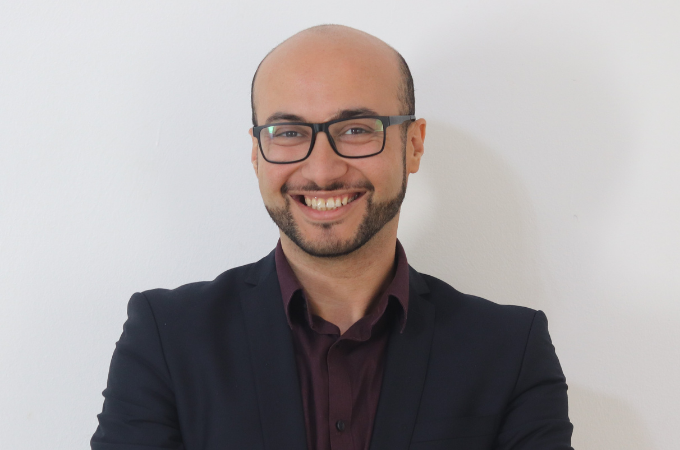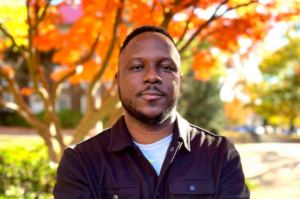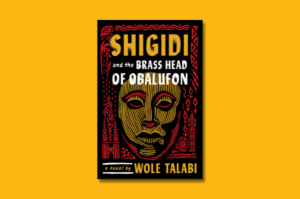
Algerian writer Hamza Koudri was shortlisted for The Island Prize for his fiction manuscript “Sand Roses.” The recently launched The Island Prize is a manuscript prize awarded to African writers for their debut fiction.
In the second in a series of Q&As with shortlisted authors, Koudri talks about the inspiration behind the story of his fascinating novel, his journey as a writer, and the challenges he’s faced. Koudri is a Director of Programs with World Learning where he “oversees a portfolio of education and workforce development projects across Algeria.” In addition to an MA in English literature and civilization, Koudri has participated in mentorship and training programs at Penn State University and Indiana University. He “enjoys writing, traveling, swimming and reading historical fiction.”
Interviewer
Tell us a little bit about your novel “Sand Roses.”
Hamza Koudri
“Sand Roses” is a historical novel set in 1930s colonial Algeria. It is about two sisters who pursue a career as courtesans in the City of Joy, a desert town that promises glamor and success for novice dancers. But Salima and Fahima must cope with unspeakable horrors as they navigate their role among a conservative community and a brutal army. When the sisters kill a French soldier in self-defense, their attempt to hide the body leads to an out-of-control cycle of violence as they are drawn into a bigger struggle against the occupation. Sand Roses is a tale of sisterhood and resistance in the face of oppression.
Interviewer
What inspired it?
Hamza Koudri
The idea struck me when I stumbled upon a podcast on prostitution in colonial and Ottoman Algeria by historian Aurélie Perrier. I was intrigued to find out about the Ouled Nail, a tribe of semi-nomads who, up until the 1980s, were raising their daughters to become courtesans, teaching them the arts of singing, dancing and seduction and welcoming them back into their folds after their years in business. Then as I discovered more about their way of life, their code, and how they used jewelry both for status and self-defense, it was both fascinating and somehow enraging to learn about a part of my own country’s history which, at 26, I had never heard of. One thing in particular that has haunted me was how Perrier likened the Ouled Nail culture with the geishas of Japan, and she talked about the cultural clash as the French occupation worked to align these local traditions with the European model of prostitution. And that is how the first seed for a story was planted in my mind, and I kept doing research and daydreaming about it until the full plot took shape.
Interviewer
When did you first start writing?
Hamza Koudri
One of my earliest memories as a kid is spinning stories using my precious collection of animal figurines as characters, or even matchsticks when away from home. Every day, I would pick up right where I had left off, or sometimes reconfigure the same scenes from the day before until I was satisfied. When I was in primary school, I wrote the first short story about the kidnapping of a medieval princess on a few pieces of paper I had folded and stapled together to make a little booklet. I will take those ugly illustrations of my scenes with me to the grave. I wrote volumes of middle grade fantasy and dramas all throughout middle school and high school, all featuring unsavory drawings of their own, and I tried to get one publisher to print my finest story – about seven sister princesses who must embrace magical powers to save their brother- but it was to no avail. As I majored in English literature, I started to dabble with short stories in English. A couple of student-run magazines published two of my stories, then my work kept me too busy to indulge my side hobby, though I continued to write hundreds of pages every year between reports and training curricula, which I enjoyed. Getting my supervisors to edit my work has helped me hone my skill. In 2015, while completing a fellowship at Penn State University, I sat in on a creative writing course with Ms. Elizabeth Kadetsky, and I found my way back to fiction. It was then that I stumbled upon the podcast by Aurélie Perrier and started outlining Sand Roses.
Interviewer
What do you feel are your strengths and/or weaknesses as a writer?
Hamza Koudri
That is a tough one. I consider flexibility to be a strong asset of mine in general, and I believe it applies to writing. I like to plot my stories ahead of time, but my plot is a constantly changing document, always reacting to the development of my story and characters. I also like to think I do not get attached to my ideas. I am usually open to changing anything and everything about my story if it stands to improve it.
Besides flexibility, one thing I really enjoy when writing is concocting elaborate plot lines out of small concepts. My favorite part about writing is creating an interactive world, with a vibrant sense of time and space then populating it with characters that lead us through exciting events that ultimately impact their lives and teach us all something in the process.
That being said, my challenge is overwriting. Every time I read a piece of my work, I easily chop off 20%, and it still feels wordy. I like to reassure myself by saying it is easier to edit an existing piece of work than working on something that has not been created yet.
Interviewer
What problems do you believe writers from Africa face?
Hamza Koudri
The major difficulty African writers face lies in the lack of support. Authors in the English-speaking world have access to a rich array of opportunities to connect with peers and professionals, hone their skill and manage their writing careers. The publishing industry here is nascent at best, a far cry from the well-established publishers in the West and often restricted by limited readership and local regulations preventing them from competing for foreign audiences. While the situation is improving in Algeria, publishers still depend heavily on the country’s flagship annual book fair (SILA). The few strong publishers have grown comfortable editing and marketing for books only in Arabic and French, creating further obstacles for young authors writing in English.
Interviewer
How have you found the experience of being shortlisted for The Island Prize?
Interviewer
This is by far the highest honor I have received as a writer. I smile giddily each time I remember that my book was read (in its entirety!!) and enjoyed by a host of renowned authors in the continent, and I have already received immense support from everyone at the Holland House Books and Karavan Press that I honestly feel like a winner no matter what the final results are. I look forward to continuing to work closely with the team to improve my book and hopefully get it published.
Interviewer
What are your writing plans in the future?
Hamza Koudri
All I know is I want to keep writing stories. I am currently planning a sequel for “Sand Roses,” taking place 20 years later in Algiers. I have enjoyed exploring the life of one unique character who struggles to make peace with her mixed origins as she negotiates a role within the Battle of Algiers. My hope is to also translate Sand Roses for French and Arabic-speaking audiences.









Zineb September 25, 2024 05:39
Sounds like a wonderful book. Looking forward to reading it